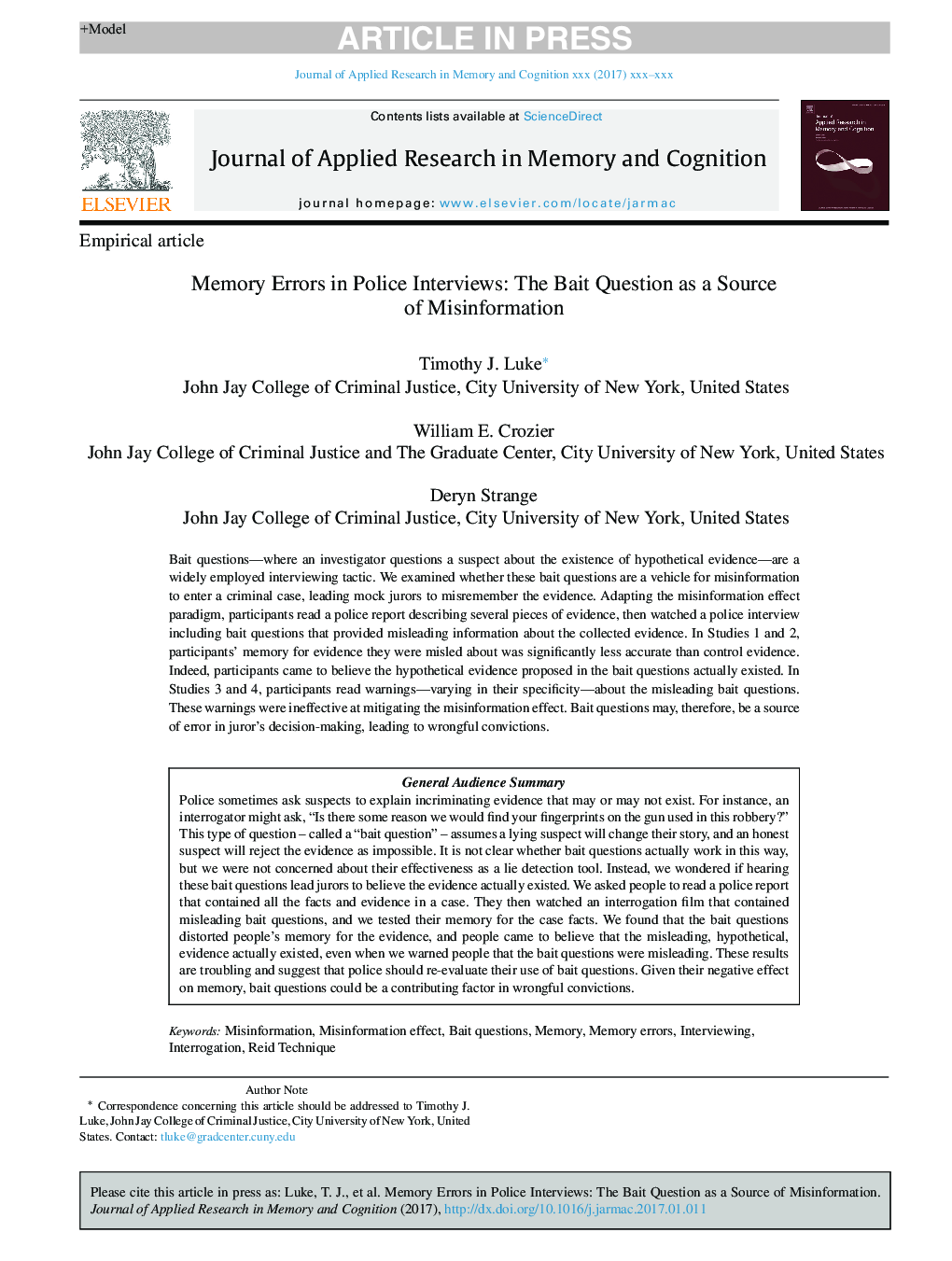| Article ID | Journal | Published Year | Pages | File Type |
|---|---|---|---|---|
| 5033967 | Journal of Applied Research in Memory and Cognition | 2017 | 14 Pages |
Abstract
Bait questions-where an investigator questions a suspect about the existence of hypothetical evidence-are a widely employed interviewing tactic. We examined whether these bait questions are a vehicle for misinformation to enter a criminal case, leading mock jurors to misremember the evidence. Adapting the misinformation effect paradigm, participants read a police report describing several pieces of evidence, then watched a police interview including bait questions that provided misleading information about the collected evidence. In Studies 1 and 2, participants' memory for evidence they were misled about was significantly less accurate than control evidence. Indeed, participants came to believe the hypothetical evidence proposed in the bait questions actually existed. In Studies 3 and 4, participants read warnings-varying in their specificity-about the misleading bait questions. These warnings were ineffective at mitigating the misinformation effect. Bait questions may, therefore, be a source of error in juror's decision-making, leading to wrongful convictions.
Related Topics
Social Sciences and Humanities
Psychology
Applied Psychology
Authors
Timothy J. Luke, William E. Crozier, Deryn Strange,
